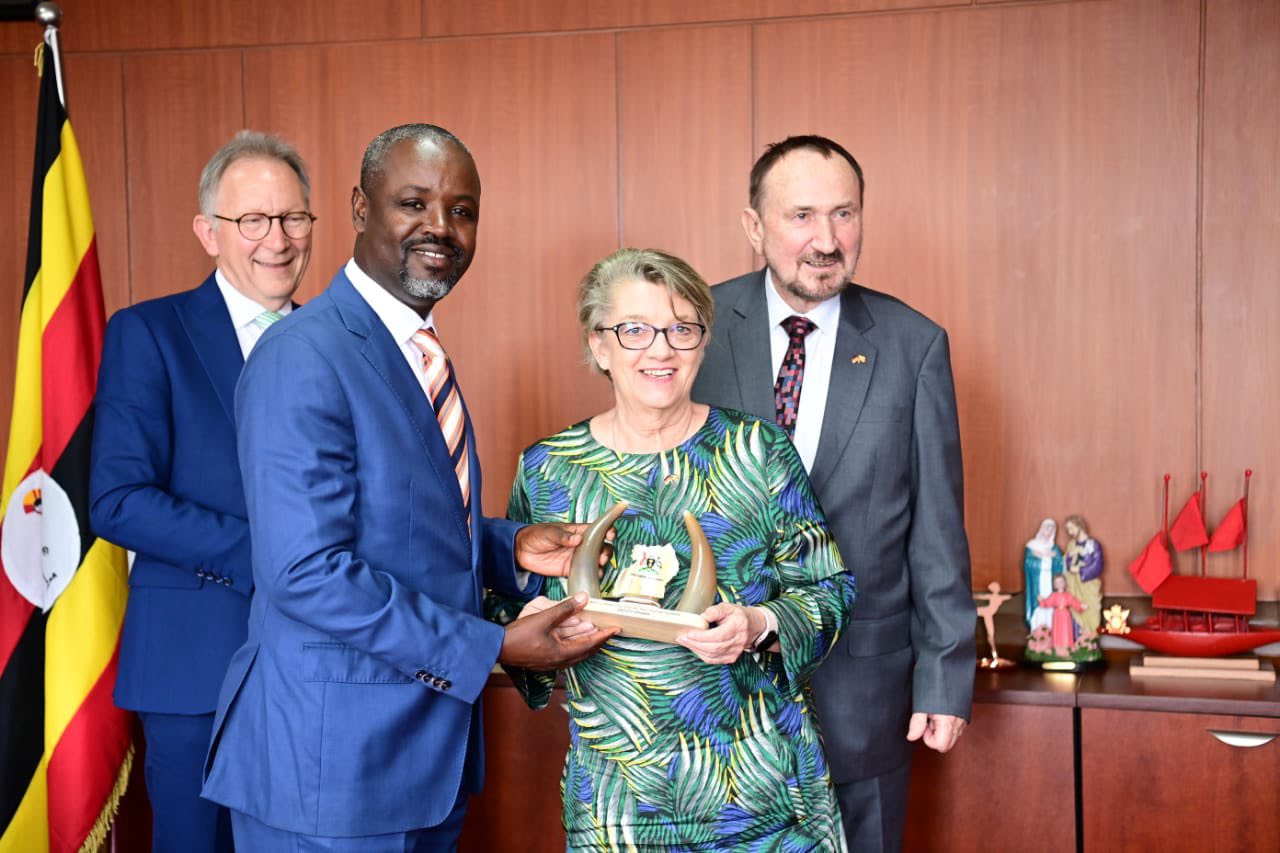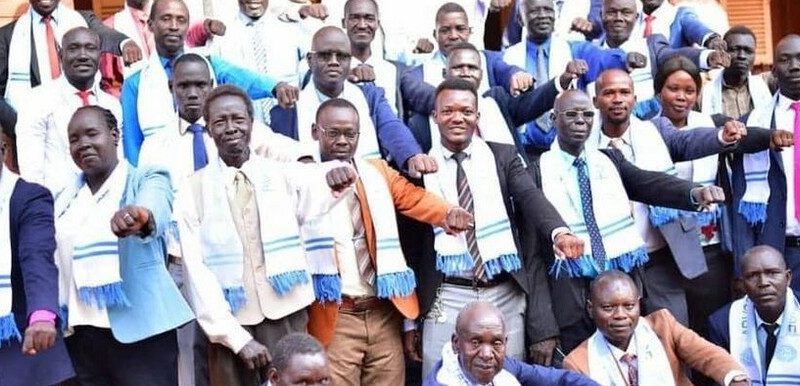

Finally, after a brief scuffle, opposition MPs were suspended from parliament for three sittings by the speaker, then physically overwhelmed and picked out of the parliamentary chamber like chicken thieves – exactly as I had predicted. I am still intrigued President Yoweri Museveni did not use uniformed soldiers with automatic rifles given his penchant for showing off his military credentials and reminding everyone that our democratic institutions work at his pleasure.
I have had a running battle with Uganda’s opposition since 2000 – my articles in Monitor newspaper are there for anyone to read. The opposition know the problem but don’t understand the solution. The issue in this debate is not the age limit. It is Museveni’s permanence in power. The opposition want to rely on constitutional technicalities to remove Museveni from power. That is a futile exercise. Museveni can only be removed from power through political struggle. Such a struggle has to have effective organization that mobilizes the masses behind the opposition. Yet the opposition have restricted their struggle to parliament where they know they don’t have the numbers.
Of course the opposition and their intellectual justifiers say Museveni has blocked them from all avenues of mass mobilization. I will return to the silliness of this excuse later. For now let me say that using parliament to grand stand may win opposition MPs sympathy among some elites and help them get re-elected in those constituencies where anti Museveni sympathies are strong. But it cannot stop Museveni’s life presidency. To this extent the violent opposition MPs in parliament are as politically opportunistic as the NRM MPs whom they accuse of putting their selfish interests above the national good. They are also grand standing to win public sympathy in their constituencies so as to be reelected, not to advance some genuine governance ideal.
The opposition should know that if they have the masses of the people behind them, they would overwhelm Museveni and even induce many NRM MPs to join them. The state in Uganda lacks sufficient police and military capability to quash a popular uprising. Therefore the failure to mobilize and organize the masses behind the anti age limit movement means that Museveni will remain in power for as long as he wants.
Over months talking to them, I am inclined to believe that over 90% of NRM MPs do not support Museveni’s continued stay in power. Many genuinely love and respect the president. But they also want to see him retire. However the incentive structure is that they gain more – both politically and financially – by supporting the amendment than opposing it. This is the stuff of politics and Ugandan politicians are not any different from politicians everywhere else in the world. If it was clear to them that the public (not just social media noise makers) would be angry with them if they support the amendment to remove age limit, NRM MPs would vote with their conscience than their calculating heads.
Secondly, a recent Afrobarometer opinion survey showed that most of the country (more than 70%) don’t want this age limit amendment. Therefore the opposition are defending a popular position. But the masses are not organized; and without organization, you cannot turn mass support into purposeful political action. That is why a well organized minority can defeat a disorganized majority quite easily. Read Lenin.
It is true that Museveni has put many roadblocks in the path of anyone who seeks to organize the people. You can accuse him of being unfair. But it is not his job to give space to his opponents. Such freedom to organize is won, not given. So what Museveni is doing may be morally repugnant but it is politically expected.
Hence it makes no sense for opposition politicians/activists to keep complaining that their failure to organize the grassroots is because Museveni has used the state machinery to put many obstacles in their way. Do they really expect him to facilitate their organization of the masses against him? Or do they expect him to ignore them as they organize the masses to remove him from power? I take such obstacles for granted as part of the obstacles towards further democratization. The success of democracy (people power) hinges the ability of the opposition and other civil society activists to overwhelm Museveni’s obstacles.
In my many unhappy encounters with Ugandan opposition activists on social media, I am intrigued by the numbers and the passion with which they express themselves. Whenever I post something on Facebook, I get anything between 50,000 to 200,000 people reading it; hundreds, sometimes thousands, commenting on it. These are huge numbers. The commentators sound passionate about their frustrations with the Museveni government. If we have such a large number of passionate citizens why is it not reflected in effective action on the streets?
I would imagine all of these passionate Ugandans on Facebook would each mobilize colleagues at their work place, at their university or neighborhood, in the market or shop or office to come out and demonstrate for their beliefs. Why don’t they do it? To claim that it is because police will beat them (or kill them) shows they are not willing to sacrifice anything for their beliefs, for the future of their country. But this also suggests that they actually don’t value the cause for which they claim to stand. Or it shows that Museveni’s government has not made them desperate to stake everything for change.
Look, the parliamentary debate is taking place in Kampala and its surrounding Wakiso district. This region has over two million registered voters. It is also a highly urbanized area i.e. the population is concentrated making mass mobilization easy and quick. Kampala and Wakiso have the most youthful, educated, exposed and passionate citizens. This is the most powerful social infrastructure for civil disobedience. Yet in spite of the drama in parliament that is being televised and streamed live on social media, and in spite of almost universal access to TV and social media, there is very little action on the streets to influence the debate in parliament.
Whenever people try to demonstrate around Kampala, Museveni sends a few policemen and the demonstration is nipped in the bud. Hardly is there any prolonged and tough resistance – except during Kayunga riots and Walk2Work. This means the Ugandans complaining on social media are either cowards or overstating their commitment to the political ideals they claim to be so passionate about. I am inclined to believe that these Ugandans – deep down inside their conscience – do not actually believe that Museveni is as bad as they claim on social media.
It is not true that Ugandans are cowards. Let us read our history. In 1981, Museveni organized these Ugandans to fight for freedom. Careers were deserted, families abandoned, educations sacrificed, jobs were quit, property and businesses left to collapse in a struggle for our cherished ideals in the bushes of Luwero. Those Ugandans like current opposition leader, Kizza Besigye, who made these sacrifices had little hope of an easy and quick victory.
In Luwero, Museveni was not paying salaries. They had limited access to the basic necessities of life – food, shelter and clothing. There was no medical care. Yet people were willing to shed blood and lose their lives for the cause. Non combatant parents contributed money, food and their children to the struggle. Without much external support or a rear base to run to when the going got tough, Museveni led these Ugandans to victory against an established state supported by 30,000 Tanzanian troops and financed by international donors.
From the experience of Luwero, three lessons emerge. One is that the situation under Museveni may not be good for many Ugandans but it is tolerable. It is not bad enough to cause them to risk everything for change. Second, contrary to their claims, many Ugandan elites on social media know they enjoy a high degree of freedom under Museveni. So their claims of tyranny are hyperbole. Three, Museveni is an exceptionally brilliant organizer and inspirational leader. He can make people make huge sacrifices.
If my claims above are wrong, then one conclusion from my evidence above is that Besigye is a very poor organizer. And I think this too is the case. The anger we see on social media is what I would call “social dynamite” waiting for a “detonator” i.e. inspirational leadership that offers effective organization converting potential political energy into effective political action.
It is clear that Besigye’s sacrifices and sufferance have endeared him to the hearts of many Ugandans tired of Museveni. However, this sympathy has also blinded his supporters from seeing the strategic deficit in his leadership. His desire to cling to the leadership of the opposition has stifled the development of alternative leaders who may have better organizational and inspirational skills than him. I rest my case!
Andrew Mwenda is a Ugandan Journalist and Media Owner







